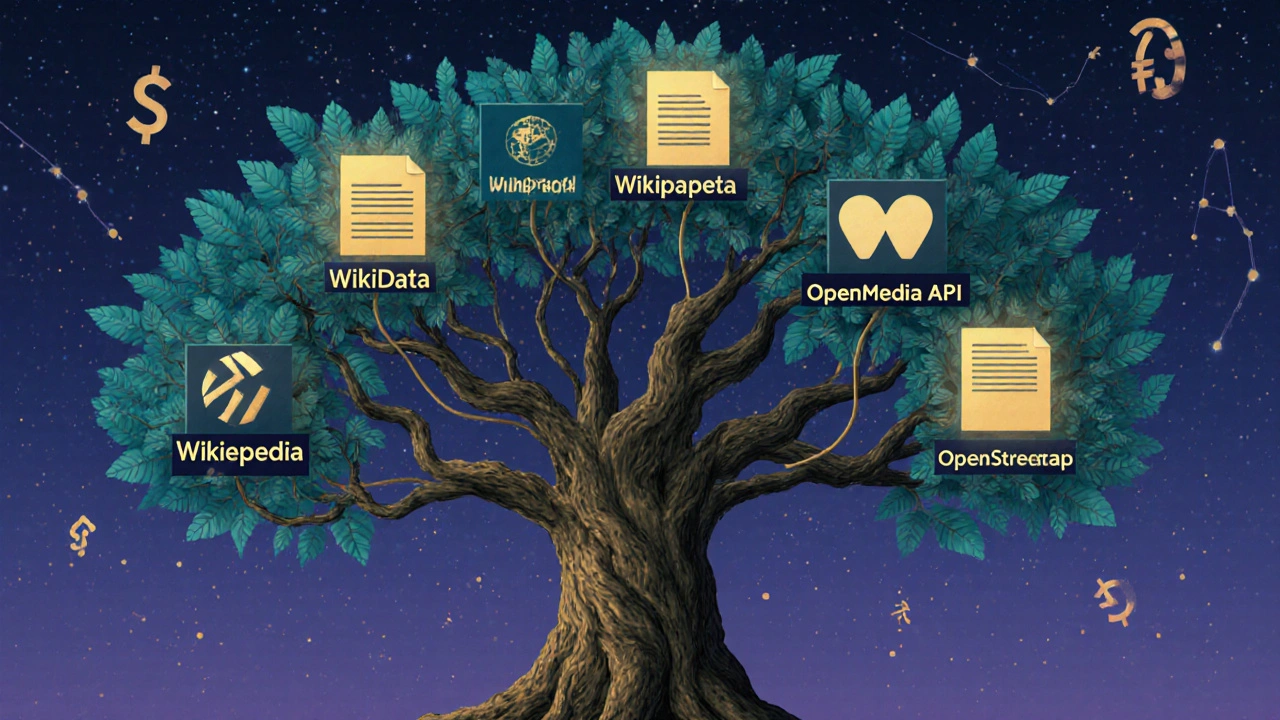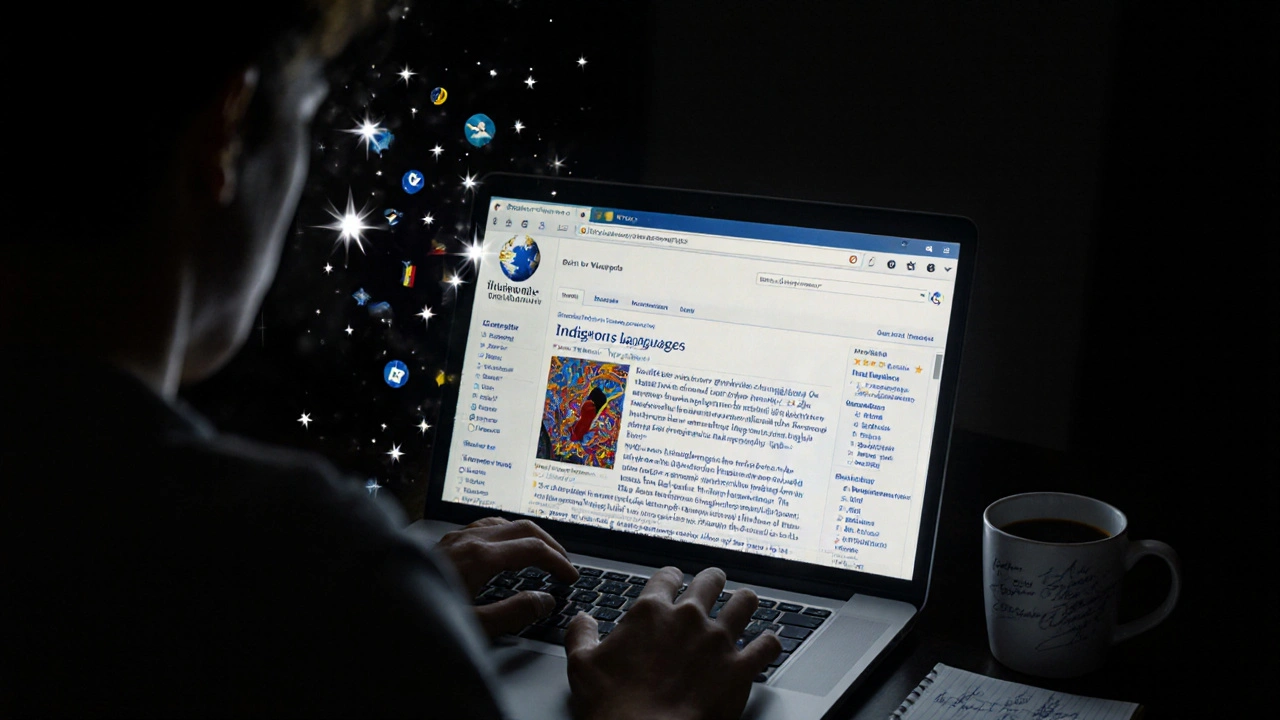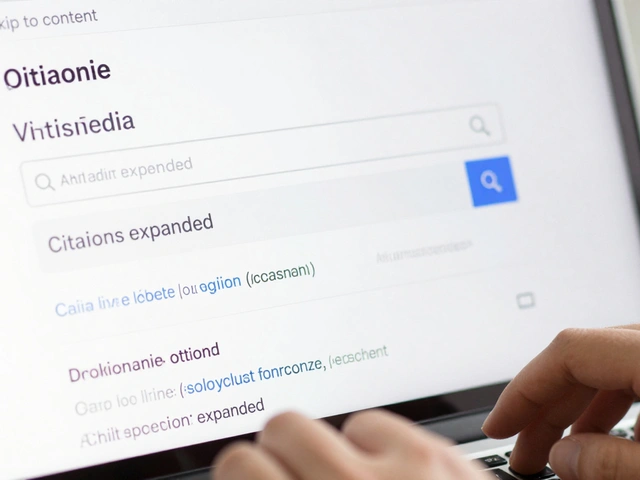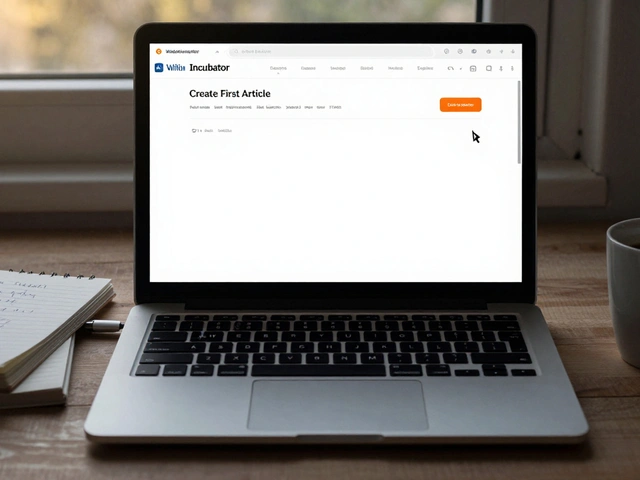
Most people think of Wikipedia as a quick lookup tool-something you use when you need to know when the Eiffel Tower was built or what photosynthesis is. But behind the scenes, a quiet revolution is happening. Thousands of researchers, librarians, and data scientists are treating Wikipedia not as a footnote, but as a living laboratory. And they’re publishing their findings in peer-reviewed journals that take open knowledge seriously.
Why Wikipedia Belongs in Academic Journals
Wikipedia isn’t just a website. It’s the largest collaborative knowledge project in human history. Over 60 million articles in 300+ languages. More than 500 million edits. More than 1.5 billion monthly visitors. These aren’t just numbers-they’re data points that reveal how knowledge is created, contested, and corrected in real time.
Early academics dismissed Wikipedia as unreliable. But by 2015, studies showed its accuracy rivaled Encyclopaedia Britannica on scientific topics. Since then, researchers have moved beyond checking facts. They’re asking deeper questions: Who writes these articles? How do edits spread across languages? What biases show up in coverage of women, Indigenous communities, or Global South nations?
That’s why peer-reviewed journals focused on open knowledge have grown. They’re not just accepting Wikipedia as a source-they’re treating it as a subject of study.
Journals That Take Open Knowledge Seriously
There are now at least six academic journals that regularly publish research on Wikipedia and related open knowledge systems. Each has its own focus, but all share a commitment to transparency, reproducibility, and community-driven scholarship.
- First Monday-Launched in 1996, this is one of the oldest open-access journals in digital culture. It’s published by the University of Illinois. Articles here examine how Wikipedia’s editing rules evolve, how bots shape content, and how community moderation works across cultures. A 2023 study in First Monday analyzed 12 million edits across 10 languages and found that articles about climate change in non-English Wikipedias were edited 40% less frequently than in English.
- Journal of Open Humanities Data-This journal doesn’t just publish papers about Wikipedia-it publishes the actual datasets researchers used. Want to know how many articles about African presidents were created between 2010 and 2020? You can download the raw data. The journal requires all code and data to be publicly archived, making research truly replicable.
- WikiJournal of Medicine-Started in 2018, this journal is unique because it’s run by Wikipedia editors who are also medical professionals. Articles are peer-reviewed, then published simultaneously in the journal and as Wikipedia articles. No paywalls. No access restrictions. The goal? To make medical knowledge accessible to everyone, everywhere. A 2024 study showed that Wikipedia articles on rare diseases linked from this journal were viewed over 2 million times in six months.
- International Journal of Digital Curation-Focuses on how digital knowledge is preserved and curated. One paper tracked how Wikipedia articles about Ukrainian cultural heritage changed after Russia’s full-scale invasion in 2022. The researchers found a 300% increase in edits from Ukrainian contributors and a 70% drop in edits from Russian IPs within weeks.
- Open Knowledge Research Journal-A newer journal (founded in 2021) that covers not just Wikipedia, but also Wikidata, OpenStreetMap, and other open projects. It’s known for publishing interdisciplinary work-computer scientists team up with sociologists, historians with data engineers. A 2025 paper used machine learning to predict which Wikipedia articles are most likely to be vandalized based on their topic, edit history, and contributor demographics.
- Information & Culture: A Journal of History-While not exclusively about Wikipedia, this journal has become a key outlet for historical research using Wikipedia as a source. One study analyzed how Wikipedia articles on colonial-era African leaders changed between 2005 and 2023. The researchers found that articles became longer, more cited, and less reliant on colonial-era sources over time.

What Kind of Research Gets Published?
If you’re thinking about submitting to one of these journals, here’s what they’re looking for:
- Methodology matters. You can’t just say “I looked at Wikipedia and found X.” You need to explain how you collected data, what tools you used (like WikiStats, PetScan, or the Wikimedia API), and how you handled bias.
- Scale is expected. Studies with thousands of articles, millions of edits, or cross-language comparisons are preferred. Small case studies are accepted, but they need strong context.
- Openness is non-negotiable. All data, code, and analysis methods must be shared publicly. Journals often require GitHub repositories or Zenodo archives.
- Impact is measured. How many people read the articles you studied? Did your research lead to changes on Wikipedia? Did it improve coverage of underrepresented topics? These are questions reviewers care about.
One 2024 study in the Journal of Open Humanities Data found that adding 10 new citations to Wikipedia articles about Indigenous languages led to a 22% increase in views-and a 15% increase in new contributors from those communities. That’s the kind of real-world impact these journals track.
How These Journals Are Changing Academic Publishing
Traditional academic journals are slow. They take months to review, charge hundreds of dollars for access, and often lock research behind paywalls. These open knowledge journals are different.
They’re all open access. That means anyone-students in rural Kenya, librarians in Bolivia, self-taught coders in Indonesia-can read the research for free. They also allow authors to publish under Creative Commons licenses, so others can reuse, remix, and build on their work.
Some journals even let researchers co-publish with Wikipedia editors. In WikiJournal of Medicine, a researcher might write a paper, then work with a Wikipedia editor to turn it into a live article. The journal version stays archived; the Wikipedia version stays updated. It’s a bridge between academia and the public.
This model is gaining traction. In 2023, the University of California system officially recognized publications in open knowledge journals as valid for tenure reviews. That’s a big deal. It means your work on Wikipedia isn’t seen as a hobby-it’s seen as scholarship.

Where to Start If You Want to Contribute
If you’re a student, researcher, or just someone who loves knowledge, here’s how to get involved:
- Find a gap. Look at Wikipedia articles on topics you care about. Are they short? Are they missing citations? Are they outdated? Use the “View History” tab to see how often they’re edited.
- Learn the tools. Learn how to use WikiStats, Wikidata Query Service, or the Wikipedia API. There are free tutorials on Wikimedia’s own learning platform.
- Collaborate. Join a Wikipedia edit-a-thon. Many universities host them. Or connect with editors on talk pages. Most are open to helping newcomers.
- Turn your project into research. If you notice a pattern-say, articles about female scientists are consistently shorter-document it. Collect data. Write it up. Submit it to First Monday or Open Knowledge Research Journal.
You don’t need a PhD. You just need curiosity and a commitment to making knowledge better.
What’s Next for Open Knowledge Research?
The next frontier? Integrating Wikipedia with other open systems. Researchers are now linking Wikipedia articles to Wikidata, OpenStreetMap, and even public health databases. Imagine a single query that pulls together: the population of a town (from Wikidata), its climate risks (from OpenStreetMap), and its historical context (from Wikipedia).
AI is also changing the game. Large language models are now being trained on Wikipedia data. But that raises new questions: How do we ensure these models don’t inherit Wikipedia’s biases? How do we know if an AI-generated article is accurate? These are the topics being debated in the latest issues of these journals.
Wikipedia isn’t perfect. But it’s the closest thing we have to a global, living library-and it’s growing every day. The journals that study it aren’t just documenting change. They’re helping shape it.
Are Wikipedia articles peer-reviewed?
Wikipedia articles themselves are not peer-reviewed in the traditional academic sense. But they are subject to constant community review-anyone can edit, flag, or cite sources. Some journals, like WikiJournal of Medicine, publish peer-reviewed articles that are then published directly on Wikipedia, creating a bridge between formal scholarship and open knowledge.
Can I cite Wikipedia in academic papers?
Most academic institutions advise against citing Wikipedia directly because it’s editable by anyone. But you can cite the original sources listed in Wikipedia’s references. Many researchers now cite the Wikipedia article as a gateway to those sources, especially when the topic is well-covered and the citations are reliable. Some journals now accept citations to stable versions of Wikipedia articles if they’re used for context, not primary data.
Do these journals accept non-academics as authors?
Yes. Many authors are Wikipedia editors, librarians, or independent researchers without university affiliations. What matters is the quality of the research, not the author’s title. Journals like First Monday and Open Knowledge Research Journal explicitly welcome contributions from the public.
How do I find data for a Wikipedia research project?
Start with Wikimedia’s official data portals: WikiStats (stats.wikimedia.org) for edit counts, the Wikimedia API for programmatic access, and Wikidata Query Service for structured data. Tools like PetScan and WikiProject tools help filter articles by topic, language, or quality. Many journals also publish datasets alongside their articles-check the Journal of Open Humanities Data for examples.
Why do these journals matter for the public?
Because they make research visible and usable. When a study finds that Wikipedia articles on mental health in low-income countries are underdeveloped, that doesn’t stay locked in a university library. It gets shared with editors who can improve those articles. The public benefits from better information, and researchers get real-world impact. This is knowledge that works for everyone.
Wikipedia is no longer just a starting point for research. It’s becoming a core part of how knowledge is made, shared, and improved. The journals that study it are proving that open collaboration isn’t the opposite of rigor-it’s a new kind of scholarship.




